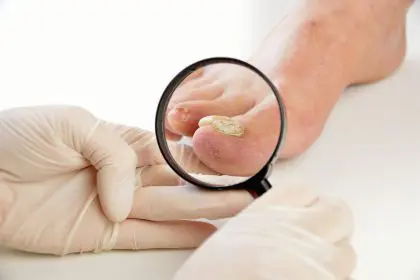You wash your hands, take your vitamins, and avoid sick coworkers. So why do you still catch every bug that goes around? The truth is, your immune system might be quietly struggling thanks to seemingly innocent habits you’ve never connected to your health. These everyday behaviors can weaken your body’s natural defenses more than most people realize.
Your immune system doesn’t operate in isolation. It’s intricately connected to nearly everything you do, from how you sleep to what you drink and even how you handle stress. Let’s pull back the curtain on the surprising everyday habits that might be undermining your immunity and leaving you vulnerable to whatever illness is making the rounds.
Sleep shortcuts that backfire badly
That “just one more episode” decision at 11 PM might be costing you more than just morning grogginess. Sleep deprivation dramatically impacts your immune function. During deep sleep, your body produces and releases cytokines—proteins that target infection and inflammation. Cut your sleep short, and you’re literally reducing your immune system’s ammunition.
The blue light from your devices is particularly problematic. Scrolling through your phone before bed suppresses melatonin production and disrupts your sleep architecture. Even if you’re in bed for eight hours, the quality of that sleep is compromised when you’ve been bathing your brain in blue light beforehand. Your immune system needs proper deep sleep cycles to perform maintenance and reset for the next day.
Inconsistent sleep schedules throw your circadian rhythm into chaos, and your immune function follows suit. Your body craves routine. When you go to bed and wake at wildly different times, your immune system becomes less efficient at deploying resources. Think of it like an army never knowing when the next shift change is coming—coordination suffers, and gaps in defense appear.
Hydration mistakes almost everyone makes
That mild thirst you feel? By that point, you’re already experiencing dehydration that impacts immune function. Water is essential for lymph production—the fluid that carries white blood cells throughout your body. When you’re dehydrated, this cellular transit system becomes sluggish, slowing your immune response time when pathogens invade.
Substituting water with coffee, energy drinks, or soda creates a double problem. These beverages often contain caffeine, a diuretic that increases fluid loss. Many also contain sugar or artificial sweeteners that can trigger low-grade inflammation. Your body then diverts immune resources to address this inflammation rather than focusing on external threats.
Morning hydration matters most, yet many people delay drinking water until later in the day. During sleep, you lose significant moisture through breathing and perspiration. Starting your day without replenishing creates an immune disadvantage that persists for hours. Your white blood cells simply can’t function optimally in a dehydrated environment.
Sugar consumption in unexpected places
The post-lunch cookie seems harmless, but sugar has an immediate and dramatic effect on immune function. Just one sugary treat can suppress neutrophil activity—your immune system’s first responders—for hours afterward. The effect is so powerful that some researchers compare it to taking immunosuppressant medication.
The hidden sugars in seemingly healthy foods create a constant immune burden most people never recognize. Granola bars, yogurt, salad dressings, and even tomato sauce often contain surprising amounts of added sugar. This creates a steady drip of immune suppression throughout the day as your body repeatedly deals with blood sugar spikes and inflammatory responses.
Artificial sweeteners aren’t the solution many believe them to be. While they don’t raise blood sugar, growing evidence suggests they disrupt the gut microbiome—home to roughly 70% of your immune system. The bacterial communities in your digestive tract are front-line defenders that train and regulate immune function. Damage this ecosystem, and your overall immunity suffers.
Movement patterns compromising immunity
Sitting for extended periods stagnates more than just your muscles. Prolonged sitting reduces circulation and lymphatic flow—the waste removal system that helps clear pathogens from your body. Without regular movement, immune cells struggle to patrol effectively, leaving potential blind spots in your defense system.
Inconsistent exercise creates immunity whiplash. While moderate regular activity boosts immune function, the weekend warrior approach—being sedentary all week then pushing hard on weekends—can temporarily suppress immunity due to stress hormone fluctuations. Your immune system thrives on consistency rather than occasional intense bursts of activity.
Exercising in poorly ventilated indoor spaces exposes you to concentrated air pollutants that stress your respiratory immune defenses. Many gyms and fitness studios have suboptimal air circulation, creating environments where you’re breathing higher levels of particulate matter, VOCs, and other people’s exhalations. This continuous low-level exposure taxes the very system you’re trying to strengthen.
Stress responses that undermine protection
That feeling of always being “on” takes a measurable toll on your immune resilience. Chronic stress elevates cortisol levels, and sustained cortisol exposure directly suppresses several aspects of immunity. Your body essentially diverts resources away from immune function to deal with the perceived immediate threat, leaving you vulnerable to pathogens.
Doomscrolling news and social media triggers your stress response multiple times daily. Each alarming headline or upsetting post activates your sympathetic nervous system, even if just briefly. These micro-stress events accumulate, keeping stress hormones elevated and immune function suppressed. Your body can’t distinguish between real and perceived threats.
Stress eating compounds the problem by combining emotional strain with inflammatory foods. When stressed, most people gravitate toward processed carbohydrates, sugars, and unhealthy fats—precisely the nutrition pattern that further compromises immunity. This creates a dangerous cycle where stress weakens immunity, and the coping mechanism weakens it further.
Social patterns affecting immune strength
Loneliness isn’t just an emotional state—it’s a physiological one with direct immune consequences. Research has found that social isolation can be as damaging to immunity as smoking or obesity. Without regular positive social contact, inflammatory markers rise and immune cell function becomes less efficient. Your immune system literally functions better when you maintain healthy social connections.
Digital relationships don’t provide the same immune benefits as in-person interaction. Face-to-face social connection triggers positive hormonal cascades that support immune function. These beneficial changes don’t occur to the same degree with text messages or video calls. The physical presence of trusted others creates a unique biological response that strengthens resilience.
Toxic relationships create chronic stress that no amount of vitamin C can overcome. Spending time with people who consistently trigger your stress response keeps cortisol elevated and immunity suppressed. Even brief interactions with highly negative individuals can impact your immune parameters for hours afterward. Your social environment is as important to immunity as your physical one.
Understanding these hidden immunity-draining habits is the first step toward strengthening your body’s defense system. Start by identifying which of these factors might be affecting you, then make small, consistent changes. Your immune system responds remarkably quickly to positive inputs, often showing measurable improvements within days or weeks of addressing these hidden drains on your natural protection.
















